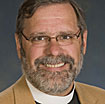Commentary on Psalm 72:1-7, 18-19
Psalm 72 is an expansive, generic enthronement hymn that was likely a staple of coronations in ancient Israel/Judah.
In the verses omitted by the lectionary, there are mentions of Tarshish, Seba, and Sheba (the latter, perhaps giving rise to the epigraph, “Of Solomon”), but for the most part the psalm — certainly as it will be heard in Christian worship today — floats free of specific historical context.
In that way, the psalm serves a purpose similar to that of the “charges” that are part of our baptism, confirmation, or commissioning liturgies where the community rehearses what it believes are God’s mission priorities for the life and ministry of the person being set apart.
Verse 1 sets the tone and contains the only petitions voiced to God in the imperative (with emphasis added through the parallel structure): “Give the king your justice … [and] the king’s son your righteousness.” Saving justice is a trademark of God’s reign and must be embodied by God’s agent in the world.
The rest of the psalm is organized around a long series of petitions that being with, “May he …” The psalm asks that God grant the king — and the people, through the king’s reign — righteousness, justice, prosperity, protection (from oppressors), a name that endures, shalom (well-being), political dominion (through which all the world is blessed), and — as a spontaneous response to these missional priorities — the tribute and admiration of the nations.
The petitions could be in order of priority, but the effect of the psalm when read aloud is of an intensifying spiraling and overlapping of attributes. Verses 18 and 19 seem to have been added to the main body of the psalm; they are a benediction to God, a doxology that closes out Book II of Psalms.
Psalm 72 responds to the first lesson by echoing and supplementing Isaiah’s prophecy about the righteous messianic shoot from Jesse’s stump. The emphases are slightly different, but the gist is the same. The gospel reading then, might be read as a reality-checking foil to all that extoling. John the Baptist knows that justice and righteousness do not appear by magic or without cost; they involve winnowing, purifying, and comeuppance!
A key to preaching this psalm is identifying the entity in our world to which the word “king” should refer. We continue to pray for these attributes for the making of justice, righteousness, and peace; but who is, was, or will be the appropriate recipient: the historic rulers of Judah, Jesus, the church itself, or even contemporary rulers and governments? And then, by extension, the sermon should declare on whom the benefits of that righteous reign fall.
There could be some homiletic mileage in having “king” refer only to the biological “sons of Jesse” who ruled from Jerusalem in antiquity. The homiletical challenge here is relevance. Citizens of the United States of America have lived without royalty for over two centuries (though the metaphors of monarchy still intrigue us).
In the psalm’s historical context, the monarch enjoys a divinely ordained blood lineage. In our context, heroic assets and the “right to rule” are attained by or projected onto leaders in more secular ways. But still, today’s hearers can identify with the ancient singers of this psalm whose hopes for justice soar at the installation of each new leader, even as they lament the ways those same hopes were dashed or unfilled by the old one.
Is Jesus the “king” of Psalm72? I respect those preachers who resist looking for Jesus under every rock in Hebrew Scripture, but on the second Sunday of Advent when this psalm is read on the heels of Isaiah 11, most hearers in worship will understand “king” to refer to Jesus (thus tracking with New Testament writers and the bulk of the church’s history of interpretation!).
But if we decide that Psalm 72 is “about Jesus,” and we declare that, “yep, Jesus is the one who fulfills (or fills full) this messianic description,” then to whom, how, and when does the promised justice come? Inside the church, we find comfort in the internal-spiritual or eschatological venues of fulfillment.
But the compelling power of this psalm’s petitions lie in applying them to the real world of politics and economics. If we are unable to articulate how Jesus’s reign effects concrete change for the nations, we run the risk of making Jesus as distant and irrelevant to today as are Solomon or Hezekiah!
Saving justice is a trademark of God’s reign and must be embodied by God’s agent in the world. And John the Baptist knows that justice and righteousness do not appear by magic or without cost; they involve winnowing, purifying, and comeuppance.
What if rather than spiritualizing the petitions and sticking with the biblical default referent for “king” (whether Solomon or Jesus), we took the petitions at their real-world face value and ask God to deliver justice and righteousness to the world through a new, surprising referent, a tangible contemporary entity ordained into leadership by God: the church (the Body of Christ) or even our secular representative republic.
When I’m sitting in the pew on Advent 2, I’d like to hear a preacher wrestle with how to stretch this psalm (and even Isaiah’s vision) so that it becomes either a recollection for the church of its mission statement or a challenge to call our secular governments to faithfulness to a mission they might not even know they are a part of. Or both.


December 8, 2013